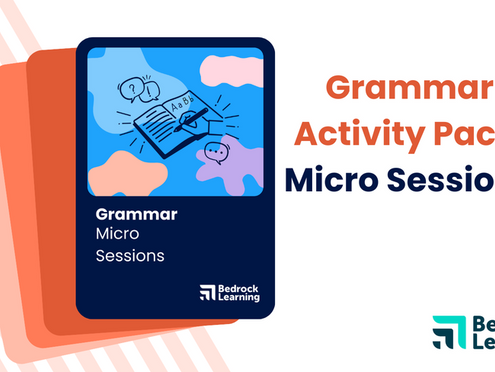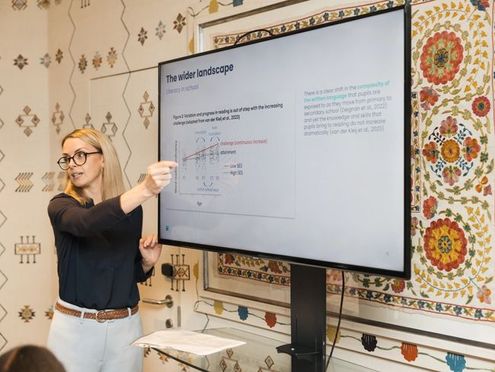How well is your school teaching vocabulary?
Explicit vocabulary teaching is crucial for closing language gaps between advantaged and disadvantaged learners. To find out more about why this is so essential, read our founder's blog breaking down top research on the language gap.
For those reading who already have a vocabulary strategy, these questions are for you. A research group in the US has collated eight key questions, stepping from research on vocabulary acquisition, that teachers should be asking themselves about their strategy.
1. Do you provide direct instruction of vocabulary in specific texts?
Take, for example, the vocabulary within a complex text being studied in history or English. Anderson and Nagy (1991) pointed out that "there are precise words children may need to know in order to comprehend particular lessons or subject matter". Does your vocabulary strategy teach these words?
2. Do you expose learners to new vocabulary items regularly and in different contexts?
Stahl (2005) cautioned against "mere repetition or drill" of a new piece of vocabulary - vocabulary instruction is best retained when learners encounter new words repeatedly, in varied contexts. Your vocabulary instruction strategy should provide learners with opportunities to encounter new terminology frequently and in new situations.
3. How carefully do you choose the vocabulary you teach?
The vocabulary you teach explicitly should include terms learners will find useful in a variety of contexts. Instruction of high-frequency words used by mature language speakers can springboard a learner's communication skills (Beck, McKeown and Kucan, 2002).
A great place to start on this is Averil Coxhead's High-Incidence Academic Word List, containing 570 of the most frequently used Tier 2 vocabulary terms learners need to thrive in academia and beyond - many of these words are taught explicitly on Bedrock Vocabulary.
4. Do you differentiate your vocabulary tasks dependent on which learners are in front of you?
Vocabulary exercise should be restructured based on the ability and need of the learners in front of you - in short, they should be flexible. The purpose of explicit vocabulary teaching is preparing learners for the language of academia, and of the world beyond the classroom - for this, your strategy needs room to shift and evolve.
Bedrock Learning answers this question through the alpha test, using bespoke low-stakes testing to place learners where learning is optimal. After all, "once students know what is expected of them in a vocabulary task, they often learn rapidly" (Kamil, 2004).
5. Do you move beyond definitions? Do you use semantic mapping?
Vocabulary teaching is most effective when it involves active engagement from learners, moving beyond definitional knowledge. This involves teaching vocabulary in a variety of contexts, placing new terms besides synonyms and antonyms, and reinforcing knowledge with images and cultural examples.
Stahl and Kapinus (2001) stated: "When children 'know' a word, they not only know the word's definition and its logical relationship with order words, they also know how the word functions in different contexts."
6. Do you use technology to support language acquisition?
The Education Endowment Foundation has released a report explaining their recommendations for schools utilising the benefits of EdTech solutions, such as Bedrock Learning, when providing consistent, structured vocabulary teaching to their learners. The NICHD knew as early as 2000 that computer technology can be used effectively to teach vocabulary, and this is even truer today.
7. Are you helping to maximise incidental learning?
Incidental learning is learning that happens by chance when doing other activities, and though this is not the only way learners increase their vocabulary knowledge, it remains an important part of the process. Learners deepen their comprehension of new vocabulary when they hear it used repeatedly in appropriate, differing contexts.
One method of ensuring incidental learning is maximised is by having high-quality adult-child conversations with learners, implementing those Tier 2 words in context.
As well as this, reading volume has been associated with long-term vocabulary development (Cunningham and Stanovich, 1998). Cunningham (2005) recommends structured read-alouds and discussion sessions in school and at home to encourage further incidental learning, as well as a love of reading.
8. How are you ensuring your approach is varied?
While all of the above questions are important, one single vocabulary instruction method will not result in optimal learning (NICHD, 2000).
It will take a combined literacy strategy from your whole school, across the curriculum, to give your learners the best chance to thrive. This is no easy task, but for your learners' attainment (and their quality of life), it is worth it.




